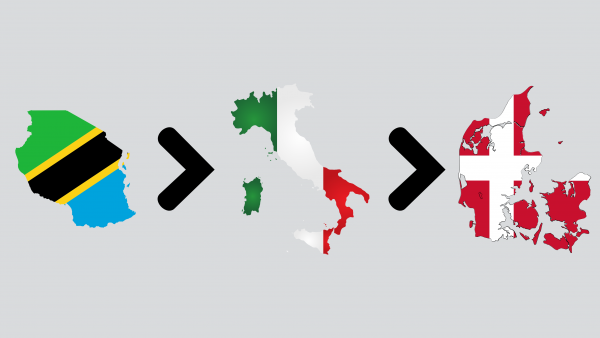By Thilde Langevang, Maribel Blasco and Søren Jeppesen

In today’s complex world, working life is often characterized by uncertainty, discomfort, and complexity. Students who wish to follow careers in international business or work for organisations in the Global South need skills and abilities to work in different cultures, cope with physically and emotionally challenging situations, to learn from and collaborate effectively with others very different from oneself, to tolerate unpredictability and failure, and to engage in problem-solving under trying conditions.
Yet most business school education is not exactly stellar at enabling such learning. At business schools, the most common experiential activities still involve classroom-based activities such as guest lecturers, case-based learning, role-plays and simulations. While such tools may make business students more knowledgeable and improve their decision-making abilities, and social and collaborative skills, they do not usually equip students to cope with highly uncertain environments and non-routine challenges, since students generally remain in their “safe” classrooms and known environments.
In a recently published paper we argue that field-based courses can help to develop vital abilities in students. Our paper is based on students’ experiences during a 3-week immersive field-based course in Uganda, held in connection with the MSc program Business and Development Studies at Copenhagen Business School. The course, which has run for 10 years, involves CBS students collaborating in groups with students from Makerere University Business School (MUBS). The course was developed following a request from a group of students and aims to offer students an opportunity to apply theories and methods from business and development studies to a practical situation, to strengthen their intercultural skills, and to sensitize them to the challenges of doing fieldwork and data collection in a developing country context.
Based on data gathered from students over several iterations of the field course, we draw on experiential learning theory to show how during the course a learning space was generated that produced three main types of disruption to students’ taken-for-granted habits and assumptions, namely: intense sensory impressions and sensations, loss of predictability and control, and learning interdependency on others.
For many students, the experience of immersion in a radically different context constituted a multisensory learning experience characterized by immediacy, which prompted reflections about their own limitations as well as reflection on others’ lives. One student, for example, noted in a focus group discussion:
You have the chance to really live an experience in a developing country and actually you can see, you can touch the life there and feel it. You can realize what you can do, and you can start to think about their way of life, you see, and it changes your mind probably. So I think also the other courses can help you, but not like this one.
Various aspects of the radically different field course context caused students to experience a loss of predictability and control. The students participating in our field course described loss of control over their ability to plan their work effectively due to contingencies, difficulties getting around, different conceptions of time and their lack of knowledge about the context. As one student expressed:
It is quite hectic when you are going from place to place and things are unplanned or they are planned and they change. . . You have to make the most out of it while you are there.
Oliver: One that just came to mind is the difficulty of planning. Where to go, whom to interview, what kind of information can you expect from people, things just change in the matter of 3 minutes. And you could have planned for weeks, and it just….
Students explicitly compared the unpredictability, flexibility, and lack of control they experienced on the field course with their tendency to stick to a “recipe-like” approach to learning back home characterized by predictability, safety, deliberately constraining their impulse to innovate, and focusing predominantly on their grade, One student said:
No offense to academics but at one point you learn to disseminate your 1,000 pages of curriculum to what is important. You learn to go to your exams and do it well and how to do it and to produce a result. It is not a recipe but you learn how to do that process. There was no recipe for this trip, it was just a bit like here is the deep end, jump in and see if you can swim.
The CBS students also came to realize through experience that to complete their assignment successfully, they would have to rely on their Ugandan peers and leverage each other’s respective differences. One student recounted:
You cannot always get your way, but that is also good if it leads to a discussion. Different academic backgrounds and learning styles impact research to a great extent. It has definitely been challenging at times when frustration has taken over, but I believe I have learnt that different approaches all have their pros and cons. Working with non-Western students is very valuable, since the CBS students came with prejudiced ideas about what Ugandan entrepreneurs are like. The MUBS students helped us with expanding our view and taught us about the Ugandan way of life.
The article offers a model that describes the disruptions and resulting dissonance, and conceptualizes how different elements of the course triggered the experiential learning cycle and desired learning outcomes.

You can read the article here: https://journals.sagepub.com/doi/full/10.1177/10525629211072571
Thilde Langevang and Søren Jeppesen are Associate Professors at the Centre for Business and Development Studies within the Department of Management, Society and Communication at CBS and have been co-teaching the field course described in the blog since 2012. Maribel Blasco is Associate Professor at the Department of Management, Society and Communication at CBS and has expertise in management learning and higher education, notably at business schools. They have jointly carried out research about the field course students learning experiences.






